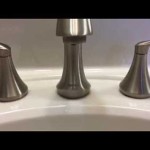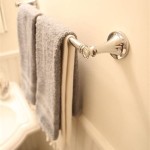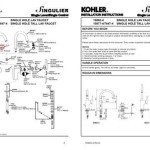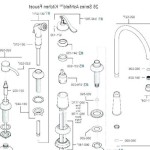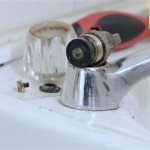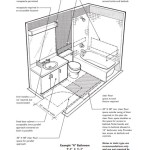How to Reseal a Bathroom Sink Drain
A leaky bathroom sink drain can be a frustrating and messy problem. Over time, the sealant around the drain can crack, deteriorate, or become loose, allowing water to seep into the surrounding area. This seepage can damage cabinets, flooring, and even lead to mold growth. Reseating the bathroom sink drain is a relatively simple DIY project that can be completed in a few steps, saving you the expense of hiring a plumber.
Tools and Materials Needed
Before starting the resealing process, ensure you have the following tools and materials:
- A screwdriver
- A putty knife or scraper
- A utility knife
- A cleaning cloth
- A small brush
- A bucket
- Rubber gloves
- Safety glasses
- Silicone sealant
- Caulk gun
- Masking tape
Steps to Reseal a Bathroom Sink Drain
Follow these steps to effectively reseal your bathroom sink drain:
1. Preparation
Begin by turning off the water supply to the sink. This can usually be done by turning a valve located under the sink or on the wall behind the sink. Once the water supply is off, drain the sink completely. Use a bucket to catch any remaining water in the sink bowl.
2. Removing the Old Sealant
Carefully remove the old sealant around the drain using a putty knife or scraper. Work slowly and steadily to avoid damaging the surrounding area. Be sure to remove all traces of the old sealant, including any residue that may be stuck to the sink or counter surface. If any remaining sealant is difficult to remove, consider using a utility knife to cut it off.
3. Cleaning the Area
Once the old sealant is removed, thoroughly clean the area around the drain using a damp cleaning cloth. Ensure all debris, dust, and old sealant residue are removed to ensure a clean and smooth surface for the new sealant to adhere to. This step is crucial for a successful and long-lasting seal.
4. Applying New Sealant
Cut the tip of the silicone sealant tube at a 45-degree angle, creating a small opening for smooth application. Apply a thin, even bead of sealant around the drain opening. Ensure the sealant fully covers the drain opening and extends slightly beyond the edges of the opening. Use a caulk gun to apply the sealant.
5. Smoothing the Sealant
Use a damp finger or a tool specifically designed for smoothing sealant to smooth out the applied sealant. Ensure the sealant is evenly distributed and free of air bubbles. Wipe away any excess sealant that may have spilled onto the surrounding areas.
6. Curing the Sealant
Allow the sealant to cure completely. Refer to the manufacturer's instructions for the specific curing time. During this time, avoid using the sink to prevent disturbing the sealant. Once the sealant has cured, the sink can be used normally.
Additional Tips
Here are several additional tips to ensure a successful resealing process:
- Protect the surrounding areas using masking tape to prevent sealant from sticking to unwanted surfaces.
- Use a sealant specifically designed for bathroom applications as it is more resistant to moisture and mildew.
- Check the drain for any other issues, such as a loose nut or a damaged drainpipe, and address them before resealing the drain.
- If the leak persists even after resealing the drain, it may be a sign of a more significant problem, such as a cracked drainpipe or a loose connection. In such cases, you may need to contact a plumber for assistance.
Resealing a bathroom sink drain is a simple and cost-effective way to address a leaky drain and prevent damage to your bathroom. By following these steps and utilizing the right tools and materials, you can successfully reseal your drain and enjoy a leak-free sink for years to come.

Installing A New Bathroom Sink

How To Replace A Rusty Sink Drain Howtolou Com

Sink Drain Replacement Bathroom

How To Re Caulk A Sink

How To Replace A Bathroom Sink Drain

Keeney 1 4 In Push On Bathroom Sink Drain With Overflow Brushed Nickel K820 75bn The Home Depot

Bathroom Sink Drain Leaking Around Threads Premier Plumbing Inc

New Bathroom Sink Drain Leaks At Threads

How To Remove A Bathroom Sink Drain Sealed With Silicone Sealant

How To Caulk A Bathroom Sink 12 Steps With Pictures Wikihow
Related Posts
